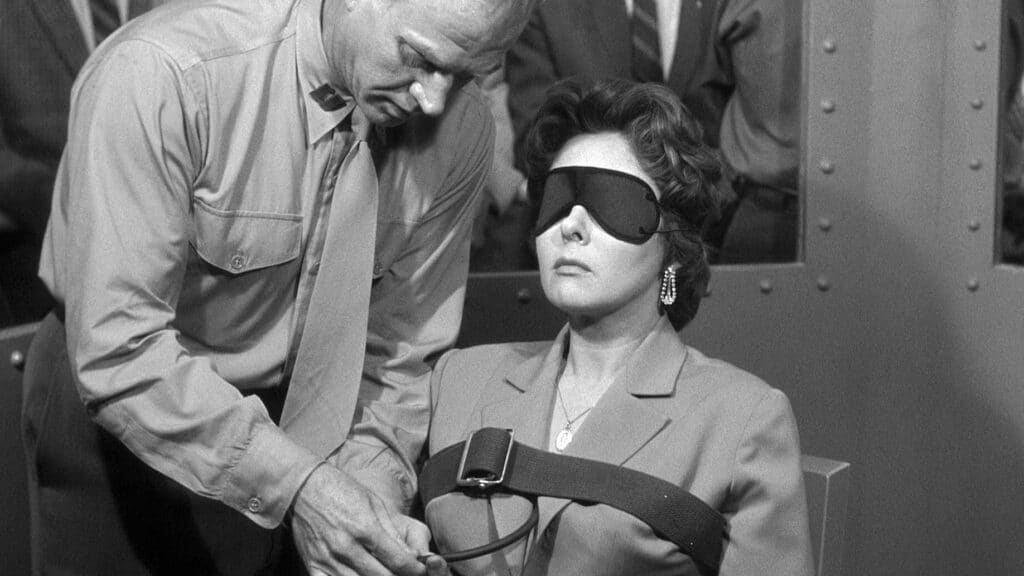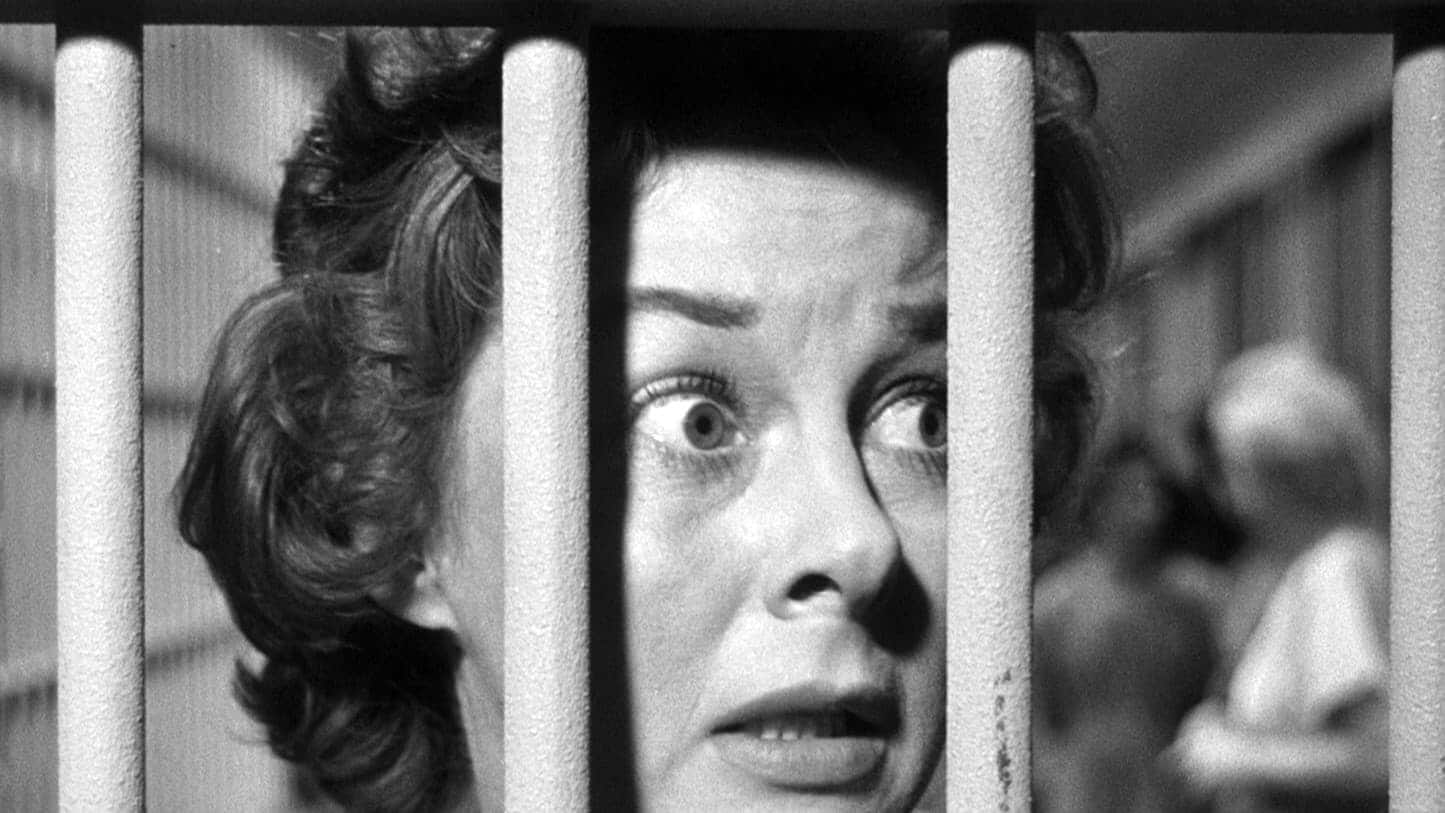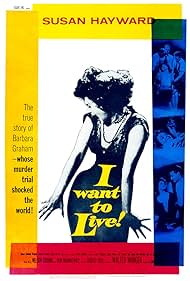I Want to Live! won Susan Hayward a Best Actress Oscar and yet the film, like Hayward herself, is barely remembered today. The story of a woman who is convicted of murder and is then executed in a gas chamber, it is an emotional and fairly gruelling drama which leaves one question entirely open – did she deserve it? – to focus on the unsavoury mechanics of the execution itself.
But first a couple of prologues, one by the writer Albert Camus, billed as the Nobel Prize winner, enjoining us not to look away, the other from the Pulitzer-winning journalist Ed Montgomery, who covered the case, and vouches that what you are about to see is all true, because it was taken from his notes or the letters of the dead woman.
Whether that’s correct is debatable but the point stands – the film is not about the guilt or innocence of its central character, Barbara Graham, but about the way she is conveyed from life to death, via a judicial system that’s less about justice and more about deals, aided by a media that’s more about “the story” than it is about truth.
Hayward is very good as Graham, the loose-living goodtime gal who loves her jazz music, will sleep with any old dude and even turns tricks now and again to make ends meet. We meet her in a jazz club, where Gerry Mulligan and his combo can be seen parping away furiously on stage, while old guys paw busty young women and young men share a pot reefer out back.
Mood established, the story very quickly moves beyond Graham’s virtue or otherwise, to her eventual attempts to straighten her life out. She gets married and has a baby, but her husband is a no-good junkie and after a year or so she’s fallen back in with a trio of deadbeats who’ll commit the murder (they say she did it; she says not) that will propel Graham first into court, then into the prison system, where she is dealt with in a humane way, then eventually on to San Quentin, where the execution takes place.
This is where the bulk of the film plays out and we get it all almost in slo-mo – the preparation of the gas chamber, the prisoner’s last meal, the visit by the priest, the nurse who sits up all night and who bonds with Graham, the last-minute stays of execution, the loading of the gas pellets into the ridiculously over-engineered contraption that will kill her and then the last walk of the blindfolded condemned woman into the chamber, where men ogle the man-magnet as she is strapped into the chair.

The whole film is carefully assembled in its various chapters – the canted angles and louche lighting of the jazz club opener, the “mean streets” noirishness of Graham’s party-girl lifestyle, the vivid buzz of the courtroom sequences and eventually the near-silence of the San Quentin sections, with director Robert Wise relying on punchy edits to tell his story visually.
Wise went to an execution himself to get a taste of what he was dealing with, and that comes through in his portrait, where everything is arranged to suggest that mechanical inevitability is what’s driving the process rather than human agency.
This is the director who did The Sound of Music and Star Trek: The Motion Picture, let’s remember, but what a powerfully focused director he proves himself to be here, the very versatile Mr Wise, whose reputation took a knock when it emerged that he was the guy who butchered Orson Welles’s The Magnificent Ambersons at the studio’s request. It never fully recovered.
Hayward’s is the make-or-break performance and she comes through with the goods, a touch histrionic here and there (though who wouldn’t be if the gas chamber was calling?), but it’s a wildly wide-ranging performance – free-and-easy vamp, wily grifter, anxious mother, furious wife, always smart and hot-mouthed. But it’s her dignity at key moments that lifts Hayward’s portrayal of Graham into a higher realm.
Ed Montgomery bookends the story in the written prologue and epilogue but is also a key figure in it, and Simon Oakland gives a supple performance as the journalist. Maybe his opinion on Graham’s guilt or innocence switches about, or maybe this instinctive newspaperman is just trying to squeeze more blood from the stone. Virginia Vincent is also highly effective as Barbara’s good-time gal-pal who actually makes the transition to suburban normality. As is Alice Backes, the stern San Quentin nurse who spends time with Graham on her last night on earth.
Hayward later said that she thought Graham was probably guilty. You won’t get that from watching her here. She also said she thought the whole business of capital punishment was “medieval”. You will get that.
I Want to Live! – Watch it/buy it at Amazon
I am an Amazon affiliate
© Steve Morrissey 2025

